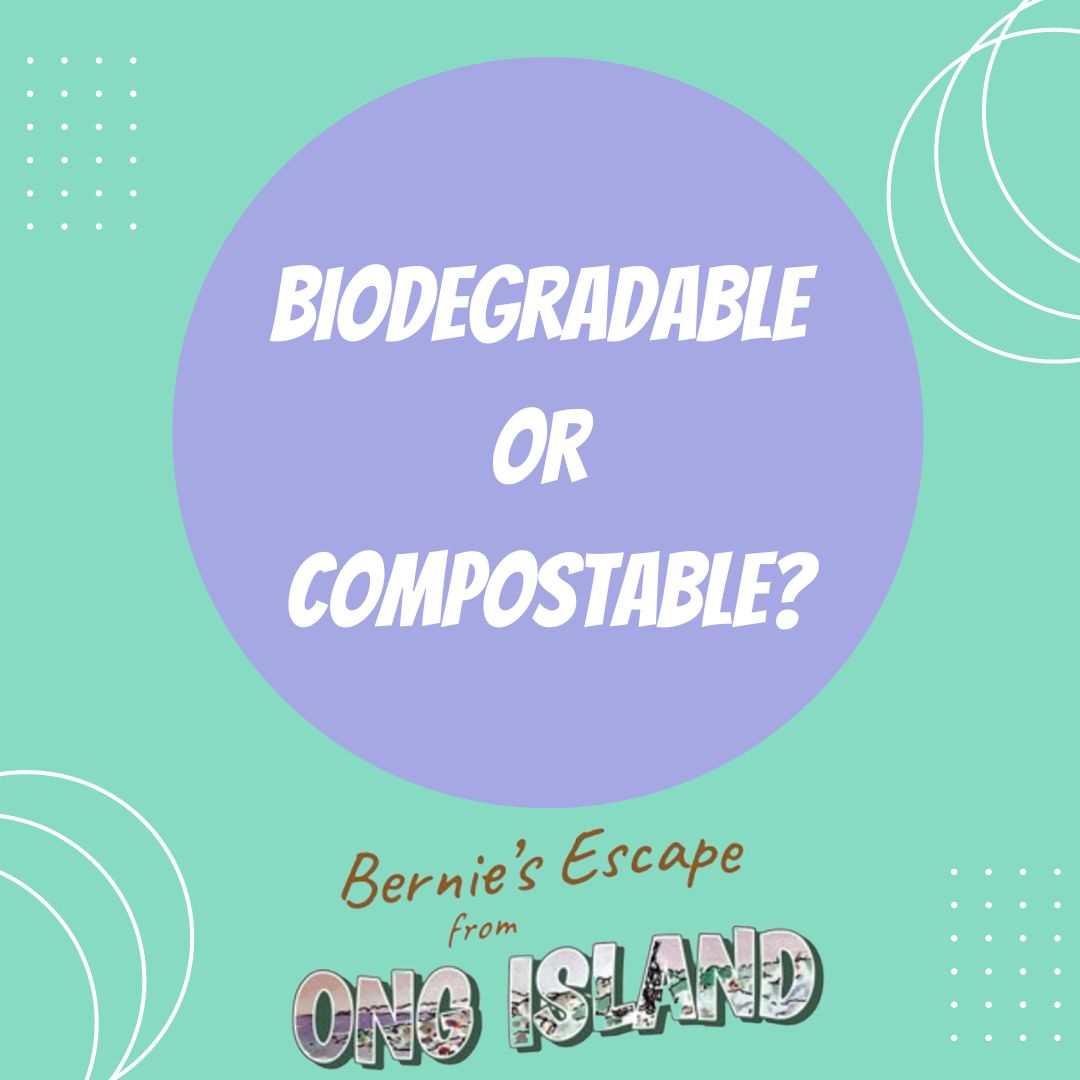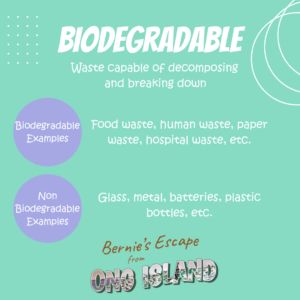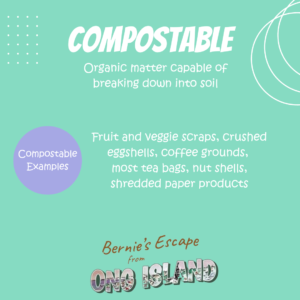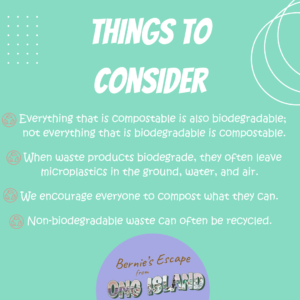
15 Sep Biodegradable or Compostable?
With so many buzzwords and hashtags floating around, sometimes it’s helpful to step back to examine what some concepts mean. Today, we want to talk about “biodegradable” and “compostable.”
These words can get mashed together by marketers, which then infiltrates our society’s lexicon and the meaning can get lost! Let’s review.
When something is biodegradable, it means that it is a waste product that is capable of decomposing and breaking down over time, usually thanks to microscopic bacteria slowly eroding the product. Things that are biodegradable include, but are not limited to, food waste, human waste, paper waste, and hospital waste. However, there are things that are non-biodegradable, such as glass, metal, batteries, and plastic bottles. These are products that are great candidates for recycling.

On the other hand, when something is compostable, that means the product is organic matter that is capable of breaking down and turning into soil. This is good for recycling the nutrients and helping the health of our soil (and reducing waste in landfills). Things that are compostable include, but are not limited to, fruit and vegetable scraps, crushed eggshells, used coffee grounds, most tea bags, nut shells, and shredded paper products. Over a shorter period of time, these things turn into soil which is great for gardens and farming.

Ultimately, we want you to know the following:
🌱 Everything that is compostable is also biodegradable; not everything that is biodegradable is compostable.
🌱 When waste products biodegrade, they often leave microplastics in the ground, water, and air.
🌱 We encourage everyone to compost what they can.
🌱 Non-biodegradable waste can often be recycled.

Keep this in mind when you’re considering purchasing new products, and when you’re deciding how to dispose of older products. We all need refreshers sometimes, and we hope this helped you today.


